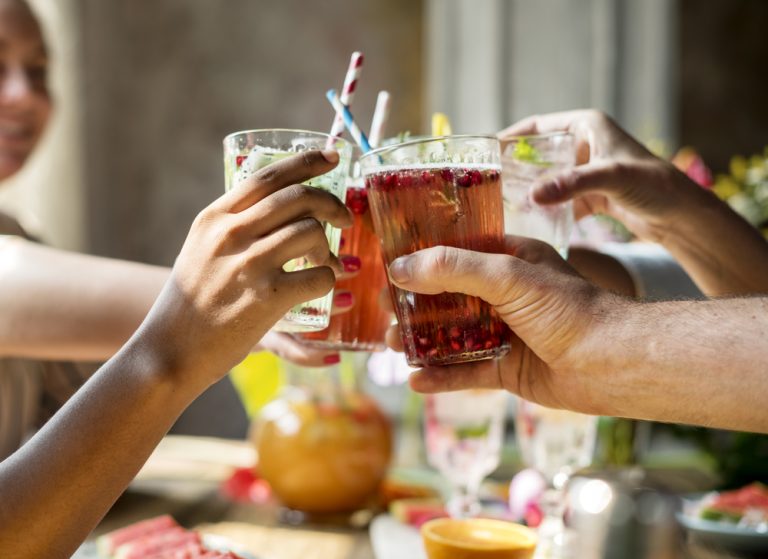After eliminating pathogens by phagocytosis, the monocytes exhibit pathogen-derived proteins and other molecules (i.e., antigens) on their surfaces. Finally, monocytes and macrophages also produce certain cytokines that help regulate immune system https://one-sonic-bite.com/tag/lyme-disease/ activity. The body constantly is exposed to pathogens that penetrate either our external surface (i.e., the skin), through wounds or burns, or the internal surfaces (i.e., epithelia) lining the respiratory and gastrointestinal (GI) tracts.

Effects on Thymocytes

Alcohol has been flying off the shelves as people try to combat boredom during lockdown, with some reports estimating that alcoholic beverage sales surged by 55 percent toward the end of March. And prolonged alcohol use can lead to mental health conditions like anxiety and depression. The morning after a night of over-imbibing can cause some temporary https://www.playterritory.com/puzzle/261/justin-bieber-at-the-doctor.html effects on your brain. Things like trouble concentration, slow reflexes and sensitivity to bright lights and loud sounds are standard signs of a hangover, and evidence of alcohol’s effects on your brain. But when you ingest too much alcohol for your liver to process in a timely manner, a buildup of toxic substances begins to take a toll on your liver.
- Yet, our misguided beliefs shape our perceptions, and our perceptions fuel our desires.
- While antibiotics do not prevent the induction of TLR mRNA production, inhibition of the nicotinamide adenine dinucleotide phosphate oxidase (NADPH oxidase) is effective in limiting hepatic TNFα levels [29].
- By illuminating the key events and mechanisms of alcohol-induced immune activation or suppression, research is yielding deeper insights into alcohol’s highly variable and sometimes paradoxical influences on immune function.
Alcohol and HIV Effects on the Immune System
Additional analyses demonstrated that ethanol exposure promoted apoptosis by inducing breaks in the DNA of the T cells. This damage to the DNA most likely was mediated by ROS generation in response to RAS activation. Treatment with a compound that activates the VDR (i.e., a VDR agonist) restored the T cell’s VDR expression, down-regulated RAS expression http://tekst-pesni.ru/index.php?name=engsongtext&op=view&id=419475 as well as ROS generation, and thus preserved T-cell survival (Rehman et al. 2013). To elicit a response from the cell-mediated arm of the adaptive immunity, antigens need to be presented to the CD4+ and CD8+ T-cells. Studies in rodents found that chronic alcohol feeding can impair presentation of protein antigens in the spleen (Mikszta et al. 1995).

Modulation of Immunity by Nutritional Change in AUD
- Things like trouble concentration, slow reflexes and sensitivity to bright lights and loud sounds are standard signs of a hangover, and evidence of alcohol’s effects on your brain.
- Similarly, alcohol can trigger inflammation in the gut and destroy the microorganisms that live in the intestine and maintain immune system health.
- Alcohol disrupts communication between these organisms and the intestinal immune system.
- “When you’re feeling run down or like you might get sick, you want to be well hydrated so that all the cells in your body have enough fluid in them and can work really well,” Favini says.
If you drink more than 12 units of alcohol, you’re at considerable risk of developing alcohol poisoning, particularly if you’re drinking many units over a short period of time. After drinking 10 to 12 units of alcohol, your co-ordination will be highly impaired, placing you at serious risk of having an accident. The high level of alcohol has a depressant effect on both your mind and body, which makes you drowsy. Past guidance around alcohol use generally suggests a daily drink poses little risk of negative health effects — and might even offer a few health benefits. For those who have a risk factor for COVID-19, like heart disease or diabetes, he recommends drinking even less. One study found that people who got less than 7 hours of sleep were nearly three times more likely to develop a cold compared with those who got 8 or more hours of sleep.
The First Line of Defense: The Effects of Alcohol on Post-Burn Intestinal Barrier, Immune Cells, and Microbiome

4Expression of TNF-α and IL-1β requires the actions of a protein called nuclear factor (NF)- B. The activity of this protein is regulated by another molecule, inhibitor of NF- B (I B). Alcohol acts on this molecule (i.e., decreases phosphorylation of I B), thereby allowing I B to attach to NF- B, interfering with its activation of cytokine expression (Mandrekar et al. 1999).
Alcohol’s Burden on Immunity Following Burn, Hemorrhagic Shock, or Traumatic Brain Injury
- Alcohol also activates an enzyme acting at the thymocyte membrane called adenylate cyclase, which increases the intracellular concentration of cyclic AMP (Atkinson et al. 1977).
- In a study examining the impact of moderate alcohol consumption on gene-expression patterns in blood cells (Joosten et al. 2012), young men consumed either 100 mL vodka with 200 mL orange juice or only orange juice daily during dinner for 4 weeks.
- For women, this reduces to three drinks on any single day and no more than seven drinks over a week.
- Likewise, higher pathogen burden and decreased CD8 T cell immunity was observed in female mice administered ethanol at 15% (w/v) for 5 days and challenged with Listeria monocytogenes (Gurung, Young et al. 2009).
That said, evidence also shows that even smaller amounts of alcohol can affect the immune system. Drinking also makes it harder for your body to properly tend to its other critical functions, like fighting off a disease. “With COVID-19, alcohol is likely to interfere with an individual’s ability to clear SARS-CoV-2 and cause people to suffer worse outcomes, including ARDS, which commonly results in death,” Edelman said.
Innate Immunity and Alcohol
- The alcohol also impairs the cells in your nervous system, making you feel lightheaded and adversely affecting your reaction time and co-ordination.
- Additionally, the rats that received estrogen showed a reduction in heart ejection fraction, which can lead to heart failure.
- The first cells to respond to pathogens are usually those that also have the ability to directly and independently neutralize and kill the microbes by, for example, phagocytosis or ROS.
- Costly requirements such as dedicated facilities to house the animals, experienced personnel to perform specialized procedures, and compliance with high standards of care must be considered.
- Other studies were conducted using a precursor cell type called oligoclonal-neonatal-progenitor (ONP) cells, which in vitro can differentiate either into B lymphocytes or into other white and red blood cells (i.e., myeloid cells), depending on the cytokines to which they are exposed.